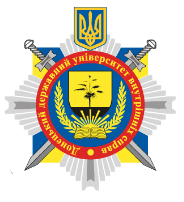ON THE QUESTION REGARDING THE GROUNDS FOR THE CRIMINALIZATION OF WAR CRIMES
DOI:
https://doi.org/10.32782/2709-9261-2024-3-11-13Keywords:
criminalization, war crimes, totalitarian regime, criminal offenses, criminal responsibility, occupied territories, war, armed conflict, international humanitarian lawAbstract
The article examines the grounds for the criminalization of war crimes in the national criminal legislation. It is indicated that the criminalization of criminal offenses against peace, human security and the international legal order in general and war crimes in particular is connected, firstly, with the need to take into account the negative, historically formed experience of protecting the civilian population in armed conflict; secondly, with the presence of relevant obligations taken by Ukraine during the ratification of treaties that form international humanitarian law; the third reason is the determination of ways to approximate national legislation to the legislation of foreign countries. It is noted that the social and criminological factors of the criminalization of war crimes should include: 1) lack of correlation between criminal and criminological measures to combat war crimes; 2) lack of a mechanism for integrating measures provided for by international legal documents into the process of preventing war crimes; 3) lack of effective psychological rehabilitation programs for civilians and military personnel who have committed war crimes; 4) lack of economic potential of the state for the timely restoration of civil facilities and critical infrastructure facilities; 5) lack of practice (standards) for the investigation of war crimes adapted to a national armed conflict; 6) lack of possibility of ensuring national stability in temporarily occupied territories and territories where active hostilities are taking place. It is concluded that the active development of international military criminal law is connected with the events that took place under the conditions of the communist totalitarian regime of 1917–1991 in Ukraine, in particular – the Second World War.
References
Орлов Ю.В. Прогнозовані ризики загострення кримінологічної обстановки: вплив воєнних та антивоєнних факторів. URL: https://dspace.univd.edu.ua/server/api/core/bitstreams/237bd837-0d16-45cf-92dd-83c95b696e11/content.
Римський статут Міжнародного кримінального суду. URL: https://zakon.rada.gov.ua/laws/show/995_588#Text.
Поклад В.І. Кримінальна субкультура як фактор детермінації воєнних злочинів. URL: https://rep.dnuvs.ukr.education/server/api/core/bitstreams/8019c1aa-1be7-4d32-97e6-8077dc7757b3/content.
Вбивства цивільних осіб: свавільні страти та напади на окремих цивільних осіб у київській, чернігівській і сумській областях у контексті збройного нападу російської федерації на Україну. URL: https://www.ohchr.org/sites/default/files/documents/countries/ukraine/2022/2022-12-07-OHCHR-Thematic-Report-Killings-UKR.pdf.
Внесок Нюрнберзького трибуналу у формування норм міжнародного права щодо злочинних організацій. URL: https://czasopisma.marszalek.com.pl/images/pliki/cpls/2/cpls203.pdf.





